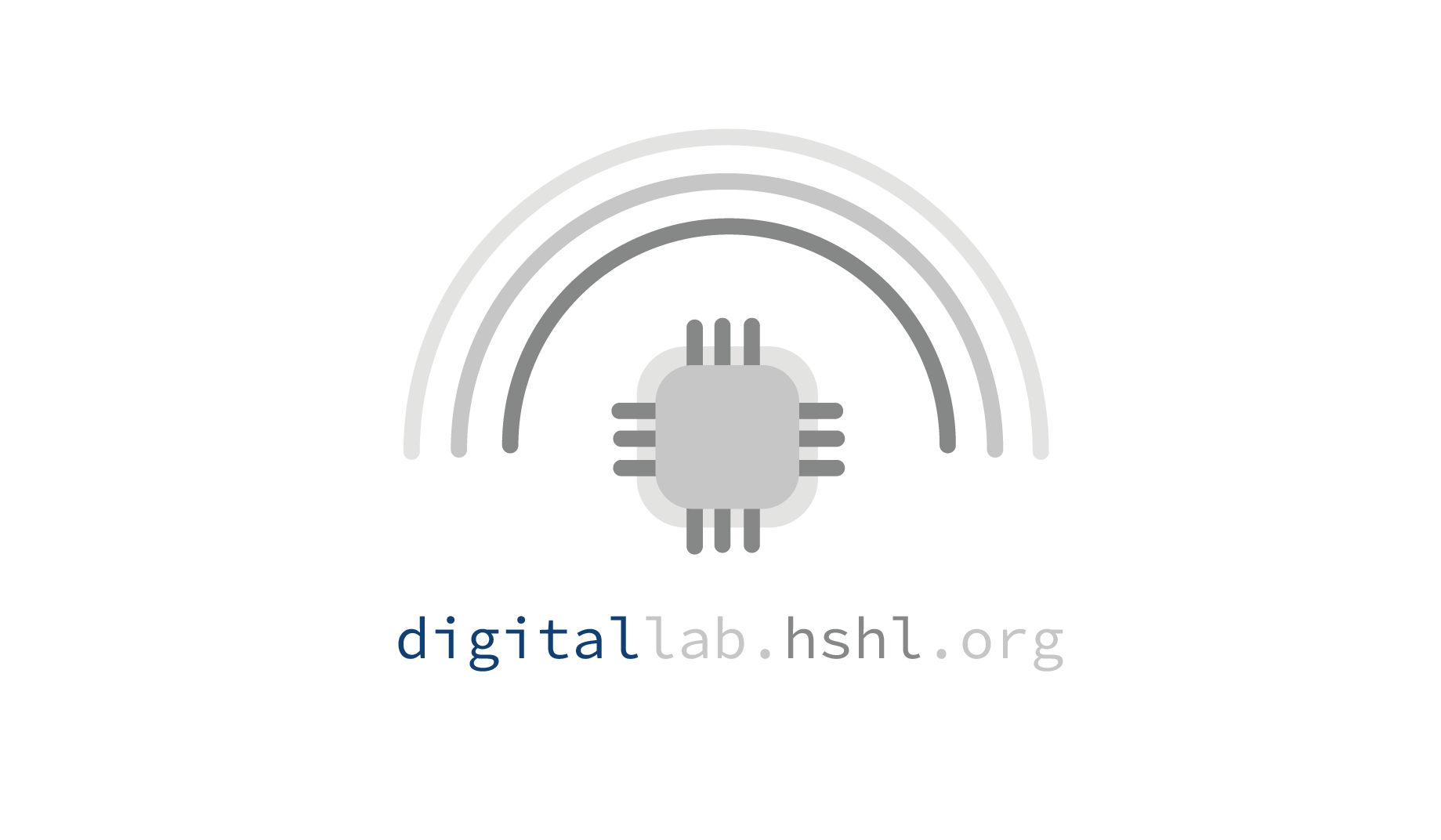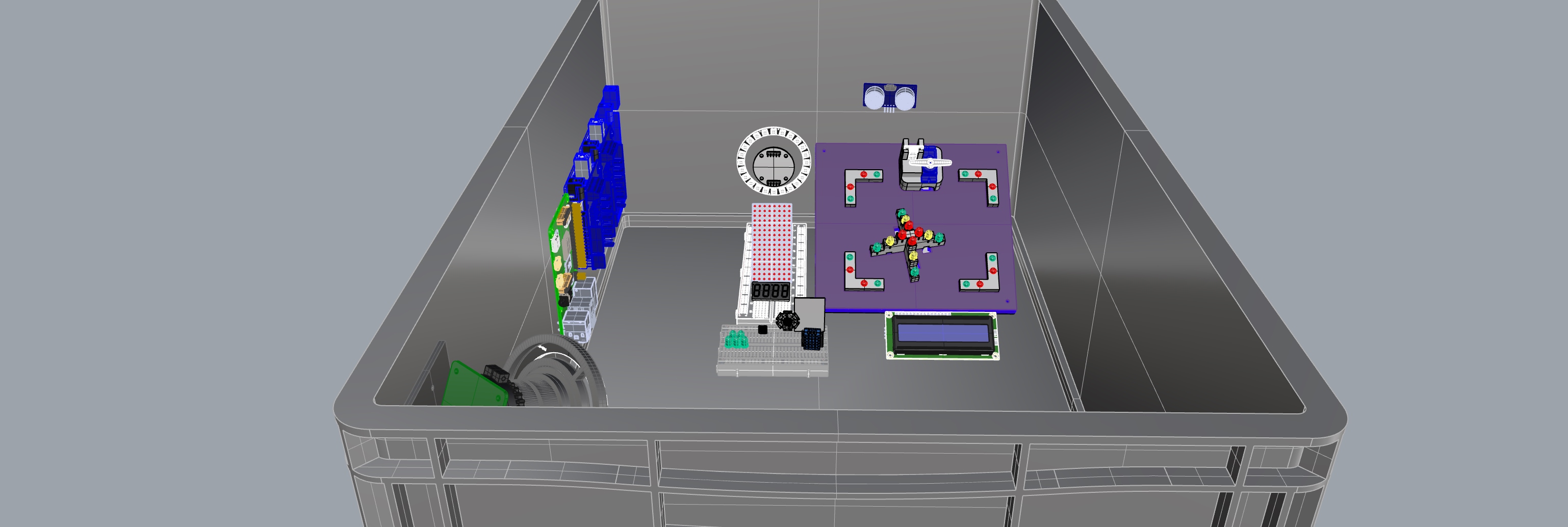We wanted to create a hybrid-/remote-environment which enables remote flashing of microcontrollers (in our Case Arduino Uno/Mega) via a low-cost server (Raspberry Pi 3), so that students can test standard sensors/actuators (e.g. X40 sensor kit) along a self-paced learning-path.
The developed system can be installed and packed into a standardized Eurobox container, observed via camera, or used in an on-site / hybrid class concept, where the wiring and routing of the components is done to safe time in the labs.
| Stage | Goals | Example |
|---|---|---|
| Beginner | Concept of time | delay(), millis() |
| Concept of PWM | LEDs, RGB-LEDs | |
| Analog inputs | analogRead() |
|
| Digital I/O | digitalRead(), digitalWrite() |
|
| Intermediate | Using C-Libraries | Displays |
| Multiplexing | 8x8 LEDs | |
| Voltage measurement | Power LED | |
| Control motors | Servo, stepper | |
| Read / debounce buttons | With servo trigger | |
| And more... | ... | |
| Advanced | Machine to machine communication | Bus or network |
| IoT Protocols | TCP/IP, UDP | |
| RESTful messages | MQTT, HTTP, OSC | |
| Traffic intersection | Use Case with Multi-LEDs |

Weiternutzung als OER ausdrücklich erlaubt: Dieses Werk und dessen Inhalte sind - sofern nicht anders angegeben - lizenziert unter CC BY-SA 4.0. Nennung gemäß TULLU-Regel bitte wie folgt: "digiFellow digital remote lab" von Beck, Brodo, Quintanila-Docmac, Henkler, Rettberg, Rother, Lizenz: CC BY-SA 4.0.
Das Projekt wurde im Rahmen des Fellowships für Innovationen in der digitalen Hochschullehre (digi-Fellows) umgesetzt.
Yet the project has been internally hosted and underwent testing in small groups to ensure its reliability and functionality. Should individuals wish to host the project independently and implement modifications, they are encouraged to do so in the form of cloned repositories.
@misc{digifellow_digital_remote_lab,
author = {Beck, Brodo and Quintanilla-Docmac, Henkler and Retttberg, Rother},
title = {digiFellow digital remote lab},
year = {2022},
publisher = {GitHub},
journal = {GitHub repository},
howpublished = {\url{https://github.com/becklog/digitallab-hshl/}},
}- C. Beck, L. Brodo, C. B. Q. Docmac, S. Henkler, A. Rettberg and K. Rother, "Introducing a group-based remote laboratory for embedded education," 2023 IEEE 21st International Conference on Industrial Informatics (INDIN), Lemgo, Germany, 2023, pp. 1-6 doi: 10.1109/INDIN51400.2023.10218010.
@INPROCEEDINGS{10218010,
author={Beck, Brodo, Docmac, Henkler, Rettberg and Rother},
booktitle={2023 IEEE 21st International Conference on Industrial Informatics (INDIN)},
title={Introducing a group-based remote laboratory for embedded education},
year={2023},
volume={},
number={},
pages={1-6},
abstract={Teaching in the area of embedded systems is challenging because both software and hardware development must be considered in an integrated manner. The experience gained through the practical hardware-related implementation of prototypes cannot simply be replaced by simulations. The question is, however, how can students gain as much practical experience as possible while taking into account real laboratory constraints? We present an approach that allows students to gain practical experience via virtual access to laboratory setups, which allows them to work in groups remotely and then continue their work in the labs, providing a similar experience as under normal lab conditions. For educators, we introduce a flexible environment that can be adopted to specialized embedded courses due to the used components and methodology of the ADDIE teaching model.},
keywords={Remote laboratories;Embedded systems;Education;Prototypes;Software;Hardware;Informatics;hybrid learning;remote laboratory;embedded systems education},
doi={10.1109/INDIN51400.2023.10218010},
ISSN={2378-363X},
month={July},}Teaching in the area of embedded systems is challenging because both software and hardware development must be considered in an integrated manner. The experience gained through the practical hardware-related implementation of prototypes cannot simply be replaced by simulations. The question is, however, how can students gain as much practical experience as possible while taking into account real laboratory constraints? We present an approach that allows students to gain practical experience via virtual access to laboratory setups, which allows them to work in groups remotely and then continue their work in the labs, providing a similar experience as under normal lab conditions. For educators, we introduce a flexible environment that can be adopted to specialized embedded courses due to the used components and methodology of the ADDIE teaching model.
%% Addie Teaching Model
graph LR
A((Analysis))
B((Design))
C[[Development]]
D[[Implementation]]
E(Evaluation)
A --> B --> C --> D --> E --> A

